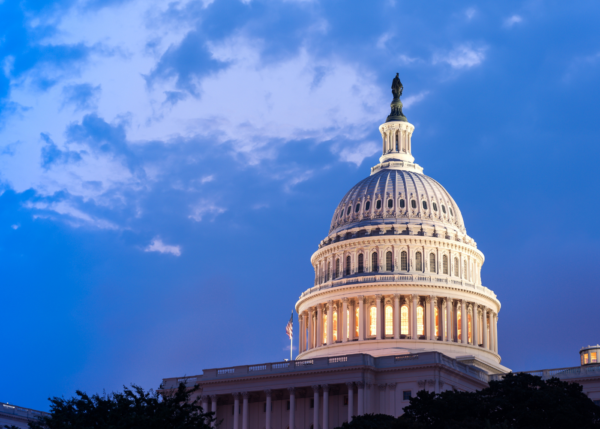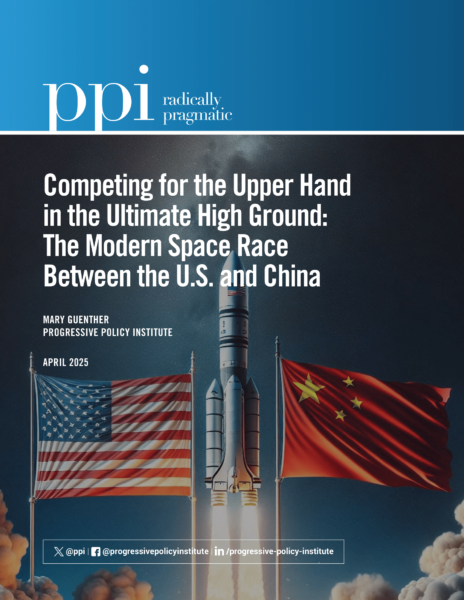FACT: Senate to vote next week on ‘terminating’ Trump tariffs.
THE NUMBERS: IMF World Economic Outlook forecast changes from January 2025 to April 2025 –
| World growth projection |
-0.5% lower |
| U.S. growth projection |
-0.9% lower |
|
|
| World inflation projection |
0.4% higher |
| U.S. inflation projection |
1.0% higher |
|
|
WHAT THEY MEAN:
As the Senate prepares to vote next week on a resolution from Sens. Ron Wyden (D-Ore.) and Finance Committee Ranking Member) and Rand Paul (R-Ky.) terminating the Trump administration’s April 2 tariff decree, here’s a sad Friday bulletin from Pennsylvania’s Lehigh Valley News:
“Mack Trucks will lay off 250 to 350 workers at its Macungie-area facility, the company confirmed Friday. The job reductions will occur over the next three months in part because of market uncertainty and the impact of tariffs, the truck maker said in a prepared statement. ‘Heavy-duty truck orders continue to be negatively affected by market uncertainty about freight rates and demand, possible regulatory changes, and the impact of tariffs,’ company spokeswoman Kimberly Pupillo said.”
Pulling back for a broader view, the International Monetary Fund’s new World Economic Outlook — out yesterday morning — drops the Fund’s January optimism about a “growing and normalizing” global economy for a year of uncertainty, slowed growth, and rising inflation. Samples:
“In the United States, consumer, business, and investor sentiment was optimistic at the beginning of the year but has recently shifted to a notably more pessimistic stance as uncertainty has taken hold and new tariffs have been announced. In labor markets, hiring has slowed in many countries, and layoffs have risen. Meanwhile, progress on disinflation has mostly stalled, and inflation has edged upward in some cases.”
…
“[G]lobal growth is … lower than the projections in the January 2025 WEO Update, by 0.5 percentage points. … U.S. growth is projected to decrease in 2025 to 1.8 percent, 1 percentage point lower than the rate for 2024 as well as 0.9 percentage points lower than the forecast rate in January. The downward revision is a result of greater policy uncertainty, trade tensions, and a softer demand outlook, given slower-than-anticipated consumption growth. Tariffs are also expected to weigh on growth in 2026.
…
“For advanced economies, the inflation forecast for 2025 has been revised upward by 0.4 percentage points since January, [and] the US forecast by 1.0 percentage point. For the United States, this reflects stubborn price dynamics in the services sector as well as a recent uptick in the growth of the price of core goods (excluding food and energy) and the supply shock from recent tariffs.”
Put concisely, on the IMF’s “macro” scale, Mr. Trump’s tariff decrees have cut $300 billion of U.S. growth this year, raised U.S. inflation by a point, and damaged financial markets. The contraction of Pennsylvania’s Mack Truck operation is a local and personal example of all this, and it’s far from rare. Some more scenes from the past week: Minnesota manufacturers canceling expansion plans; Tennessee Asian restaurants, North Carolina craft brewers and Arizona auto dealerships facing sudden price spikes and loss of customers; Indiana landscapers seeing “fear in the market” and orders put on hold; Texas’ natural gas exporters grappling simultaneously with falling gas prices, higher port construction costs, and potential retaliations; and (seen through the eyes of Merced Rep. Adam Gray) California’s Central Valley farmers worrying about looming foreign retaliations against their $24 billion in exports of almonds, wine, vegetables, and other crops.
What might be done? Congress, not presidents, has Constitutional power over tariff rates and can stop the bleeding whenever it chooses. An inflection point will come next week as Sens. Wyden and Paul, having successfully gotten the Senate to pass one resolution in March to terminate the February Canada/Mexico/China “emergency” decree, now propose a second. This Joint Resolution would void the full April 2 decree, including its worldwide 10% tariff, its 125% tariff on Chinese-made goods, and its (temporarily suspended but not canceled) “reciprocal” tariffs of up to 50% on 57 countries. Their concise 72-word bill reads as follows:
“Joint Resolution terminating the national emergency declared to impose global tariffs.
Resolved by the Senate and House of Representatives of the United States of America in Congress assembled,
“That pursuant to section 202 of the National Emergencies Act (50 U.S.C. 1622), the national emergency declared on April 2, 2025, by the President in Executive Order 14257 (90 Fed. Reg. 15041) is terminated effective on the date of the enactment of this joint resolution.”
Senate passage of course is only one step. In their offices on the Capitol Building’s south end, Republican House leaders have spent the spring devising exotic procedural devices to avoid a vote on tariffs. It’s worked so far, but their passivity, is not consensus. Trade Subcommittee Ranking Member Rep. Linda Sanchez (D-Calif.) leads all 19 House Democrats on the Ways and Means Committee (the one responsible for tariff policy) in a Resolution to void both February’s Canada/Mexico/China decree and the April 2 decree. And Constitution-friendly Republican Rep. Don Bacon from Nebraska offers another to require Congressional approval for any future “emergency” or “national security” tariffs.
Looking ahead to next week’s first step, a lot of harm is already done. And whether in the IMF’s “global economy” view, or the Lehigh Valley News’ “neighborhoods and communities” perspective, it is metastasizing daily. The sooner Congress reclaims its authority and restores Constitutionally legitimate policymaking, the less the harm will spread, and the more quickly the U.S. and the world alike will heal.

FURTHER READING
PPI’s four principles for response to tariffs and economic isolationism:
- Defend the Constitution and oppose rule by decree;
- Connect tariff policy to growth, work, prices and family budgets, and living standards;
- Stand by America’s neighbors and allies;
- Offer a positive alternative.
The Constitution and its friends:
U.S. Constitution text, from the National Archives. See Article I, Section 8, first clause, for “Taxes, Duties, Imposts, and Excises.”
Sens. Ron Wyden (D-Ore.) and Rand Paul (R-Ky.) propose terminating the April 2 “emergency” declaration.
Rep. Linda Sanchez (D-Calif.) and House Ways and Means Democrats propose terminating both the April 2 global and February 1 Canada/Mexico/China “emergency” decrees, and require any future “emergency” and “national security” tariffs to get Congressional approval.
And Rep. Don Bacon (R-NE) with Foreign Relations Ranking Member Greg Meeks (D-N.Y.), Jeff Hurd (R-Colo.), and Josh Gottheimer (D-N.J.) with a look-ahead bill to require a Congressional vote on any future tariff imposition.
Real-world perspectives:
The Lehigh Valley News on layoffs at Mack Truck.
… and State Rep. Josh Siegel appeals for Congressional delegation help.
Rep. Adam Gray (D-Calif.) on tariffs, retaliations, and the dent they’re putting in Central Valley farm exports and rural income.
Tennessee’s Asian restaurants and North Carolina’s craft brewers grapple with price shocks and lost business.
Arizona auto dealers and Indiana landscapers ponder falling sales, while Texas’ LNG exporters watch prices drop while infrastructure costs rise.
And economic analysis:
A gloomy look around the world from IMF Managing Director Kristalina Georgieva.
And former Treasury Secretary Larry Summers (video, via the Peterson Institute for International Economics), explains the fallacies of Trump administration tariffs and their likely effects at home.
For more detail, the IMF’s April World Economic Outlook has growth, inflation, and other projections, and analysis of tariff shocks, business uncertainty, and their likely impacts.
… and as a comparison, its happier late-January Outlook update, with our justifiably apprehensive comment at the time.
ABOUT ED
Ed Gresser is Vice President and Director for Trade and Global Markets at PPI.
Ed returns to PPI after working for the think tank from 2001-2011. He most recently served as the Assistant U.S. Trade Representative for Trade Policy and Economics at the Office of the United States Trade Representative (USTR). In this position, he led USTR’s economic research unit from 2015-2021, and chaired the 21-agency Trade Policy Staff Committee.
Ed began his career on Capitol Hill before serving USTR as Policy Advisor to USTR Charlene Barshefsky from 1998 to 2001. He then led PPI’s Trade and Global Markets Project from 2001 to 2011. After PPI, he co-founded and directed the independent think tank ProgressiveEconomy until rejoining USTR in 2015. In 2013, the Washington International Trade Association presented him with its Lighthouse Award, awarded annually to an individual or group for significant contributions to trade policy.
Ed is the author of Freedom from Want: American Liberalism and the Global Economy (2007). He has published in a variety of journals and newspapers, and his research has been cited by leading academics and international organizations including the WTO, World Bank, and International Monetary Fund. He is a graduate of Stanford University and holds a Master’s Degree in International Affairs from Columbia Universities and a certificate from the Averell Harriman Institute for Advanced Study of the Soviet Union.




